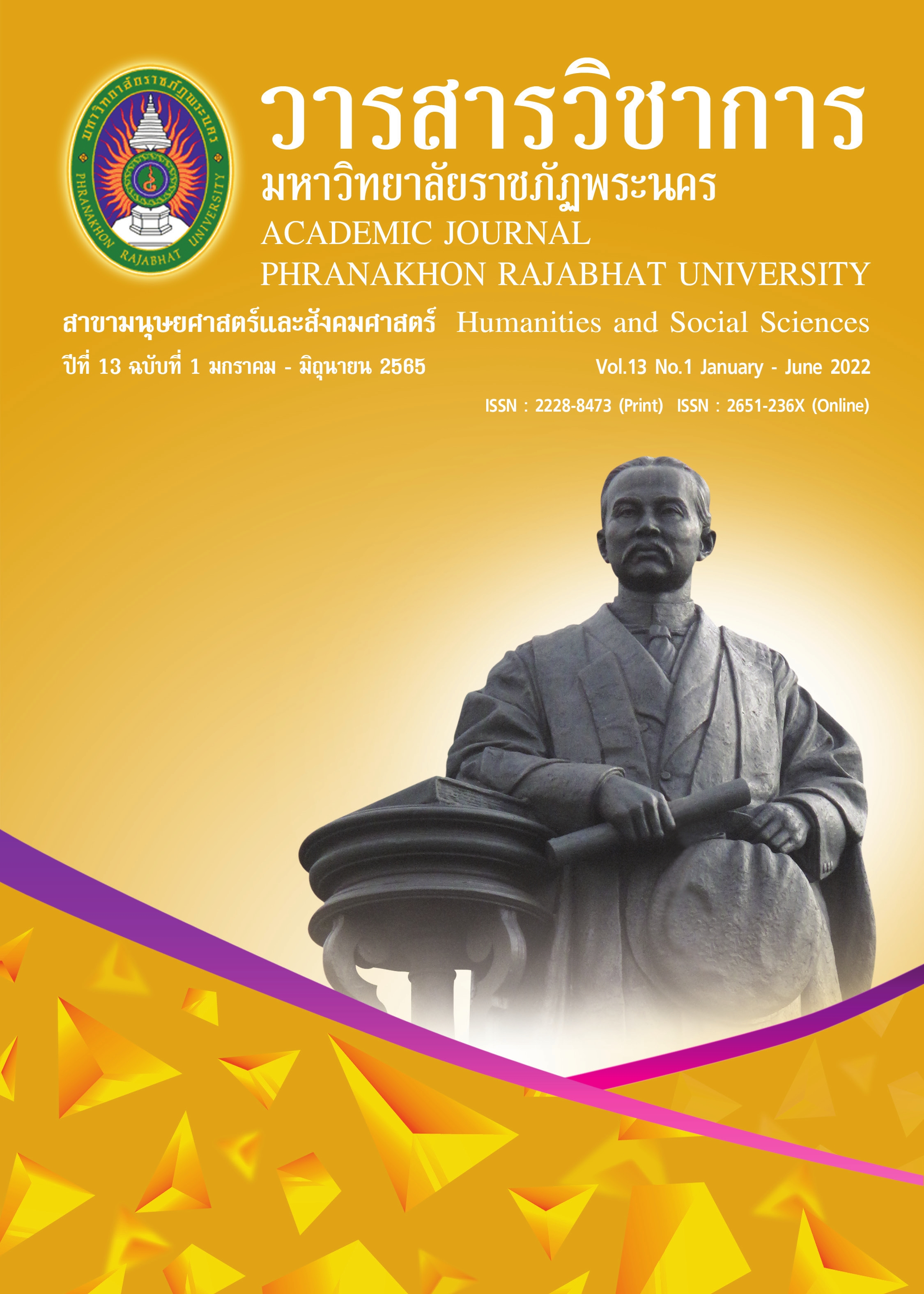DEVELOPMENT OF TRAINING PACKAGES ON DIGITAL LITERACY (i-MIDL), INFORMATION TECHNOLOGY, AND ISLAMIC INTEGRATED DIGITAL MEDIA TO PREVENT CYBERBULLYING AMONG SECONDARY SCHOOL TEACHERS IN PATTANI PROVINCE
Keywords:
Training packages, Cyberbullying, Halal Media EcosystemAbstract
Cyberbullying among students was one of the problems affecting their academic achievement and, in some cases, led to psychological trauma to death. This research and development aimed to: 1) develop a training package to develop training packages on digital literacy (i-MIDL), information technology, and Islamic integrated digital media to prevent cyberbullying for secondary school teachers in Pattani Province, and 2) to examine the results of using the developed training package. The sample used in the research was 20 teachers in 4 secondary schools under the Education Network for citizens of the Thai Civic Education Coordinating Center from Pattani Province. The research tools comprised of the i-MIDL training packages including training plan, training materials, and trainees’ satisfaction questionnaire on the training. The results showed that: 1) the established training kits consisted of 4 activities: Fitnah (Falsehood), Faedah (Benefit) - Amanah (Responsibility) – Adab (Manners), and 2) the teachers were able to develop extra-curricular activities by developing an Islamic Digital Quotient (i-DQ) booklet, and the findings of the cumulative evaluation of trainee satisfaction by training package revealed that teachers were satisfied with the training kits at the highest level (xˉ =4.40, S.D. =.35).
References
Aldoobie, N. (2015). ADDIE Model. American International Journal of Contemporary Research, 5(6), 68-72.
Awang, S. et al. (2021). Effects of bullying behaviors among students in Pattani provinces. Paper presented at the 20th National Conference on Community and Social Development, Taksin University. July 30 – August 1, 2021. (in Thai)
Che Noh, C H. & Ab.Rahman, A.H. (2013). Cyberbullying: A general Islamic outlook and response. American-Eurasian Journal of Sustainable Agriculture, 7(4), 256-261.
Damir-Geilsdorf, S. & Tramontini, L. (2015). Renegotiating shariʿa-based normative guidelines in cyberspace: The case of women’s ʿawra. Heidelberg Journal of Religions on the Internet, 9, 19-44.
Detsom, K. & Vehachart, R. (2021). Development of digital citizenship of student in 21st century. Payap University Journal, 31(1), 151-163. (in Thai)
Falloon, G. (2020). From digital literacy to digital competence: the teacher digital competency (TDC) framework. Educational Technology Research and Development, 68(1), DOI:10.1007/s11423-020-09767-4
Islam, T. M. (2019). The impact of social media on Muslim society: from Islamic perspective. International Journal of Social and Humanities Sciences, 3(3), 95- 114.
Knowles, M.S. (1978). Andragogy: adult learning theory in perspective. Community College Review, 5(3), 9-20. DOI:10.1177/009155217800500302
Kularb, P. (2020). The promotion of media, information, and digital literacy for children and youth: case studies from South Korea, Singapore, and the United Kingdom. Journal of Journalism, 13(2), 130-165. (in Thai)
Laeheem, K. (2013). Factors associated with bullying behavior in Islamic private schools, Pattani province, southern Thailand. Asian Social Science 9(3), 55-60.
Laeheem, K., M Kuning, M., N McNeil, N., & Besag, V.E. (2009). Bullying in Pattani
primary schools in southern Thailand. Child Care Health Development,
(2),178-83.
Leine, E. & Tamburrino, M. (2014). Bullying among young children : strategies for prevention. Early Childhood Education, 42(4), 271-278.
Lohwithee, V. (2018). Integrated Islamic teaching and learning management. Retrieved from https://www.skthai.org/th/articles/113051 [2020,18 Sep.] (in Thai)
McCarthy, J. (2015). Student-centered learning: it starts with the teacher. Retrieved from https://www.edutopia.org/blog/student-centered-learning-starts-with-teacher -john-mccarthy [2020,18 Sep.]
Oblad, T. (2020). A holistic overview of cyberbullying across the world: review of theories and models. Retrieved from https://www.intechopen.com/ chapters /72419 [2020,18 Sep.]
Putra, A.D.I. (2020). ‘Fitna’ in everyday life: phenomena of the digital behavior of indonesian Muslim society on dajjal hadith. Ulul Albab, 21 (1),1-23.
Razvi, Z., Dada, S. & Ahsan, H. (2017). Muslims in Cyberspace. Retrieved from http://www.hibamagazine.com/muslims-in-cyberspace [2020,15 Oct.]
Redmond, P., Lock, J.V., & Smart, V. (2020). Developing a cyberbullying conceptual framework for educators. Technology in Society, 60, 101223. DOI:10.1016/j.techsoc.2019.101223
Shehu, M.I., Othman, M. F., & Osman, N. (2017). The social media and Islam. Sahel Analyst: Journal of Management Sciences, 15 (4),67-80.
Sittichai, R. & Smith, P.K. (2013). Bullying and cyberbullying in Thailand: a review. International Journal of Cyber Society and Education, 6(1), 31-44.
Sittichai, R. & Tudkuea, T. (2017). Cyberbullying behavior among youth in the three southern border provinces, Thailand. Academic Services Journal, Prince of Songkla University, 28(1), 86-99. (in Thai)
Sittichai, R. (2014). Information technology behavior cyberbullying in Thailand: incidence and predictors of victimization and cyber-victimization. Asian Social Science, 10(11), 132-140.
Songsiri, N., & Musikaphan, W. (2011). Cyber-bullying among Secondary and Vocational Students in Bangkok. Journal of Population and Social Studies, 9(2), 235-242.
Spiegler, J. & Sisaye, S. (2016). Protecting our Muslim youth from bullying: the role of the educator. Retrieved from https://www.stopbullying.gov/blog/ 2016/02/ 09/protecting-our-muslim-youth [2020,15 Oct.]
Suttisima, V., Chainan, P., & Yuwkosol, S. (2019). Indicators of media information and digital literacy in working age for democratic citizen. The Journal of Social Communication Innovation, 7(1), 194-202. (in Thai)
Törnberg, A. & Törnberg, P. (2016). Muslims in social media discourse: Combining topic modeling and critical discourse analysis. Discourse, Context & Media, 13, 132-142.
Tuntavanitch, P. & Jindasr, P. (2018). The Real Meaning of IOC. Journal of Educational Measurement, Mahasarakham University, 24(2), 3-11. (in Thai)
UNICEF. (n.d.). Cyberbullying: What is it and how to stop it : 10 things teens want to know about cyberbullying. Retrieved from https://www.unicef.org/end-violence/how-to-stop-cyberbullying [2020,2 Sep.]
Wongyai, N. (2017). A guide to developing digital literacy skills of digital native. Veridian E-Journal, Silpakorn University, 10 (2), 1630-1642. (in Thai)
Downloads
Published
How to Cite
Issue
Section
License
Copyright (c) 2022 Academic Journal Phranakhon Rajabhat University

This work is licensed under a Creative Commons Attribution-NonCommercial-NoDerivatives 4.0 International License.
"บทความวิชาการในวารสารฉบับนี้ ถือเป็นความรับผิดชอบของผู้เขียนเท่านั้น"
สงวนลิขสิทธิ์ตามพระราชบัญญัติลิขสิทธิ์




